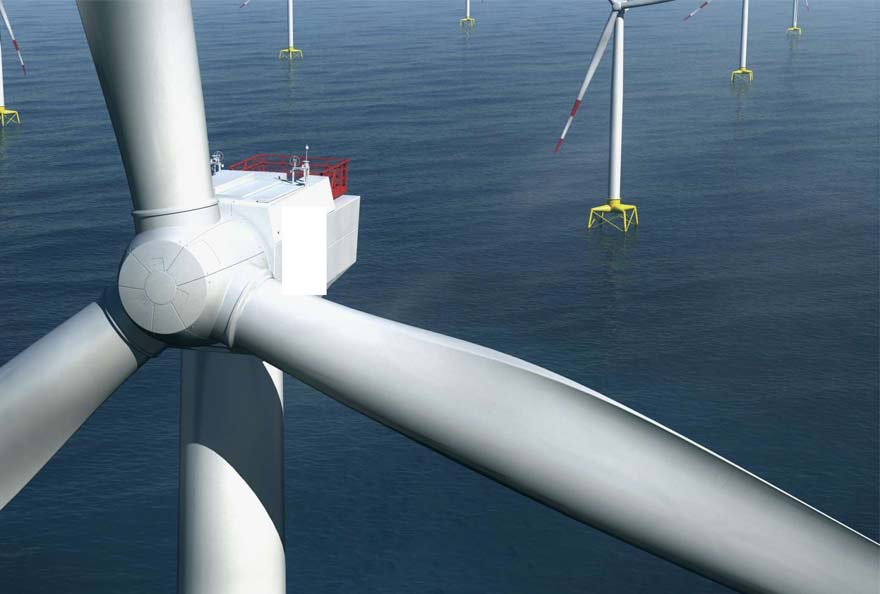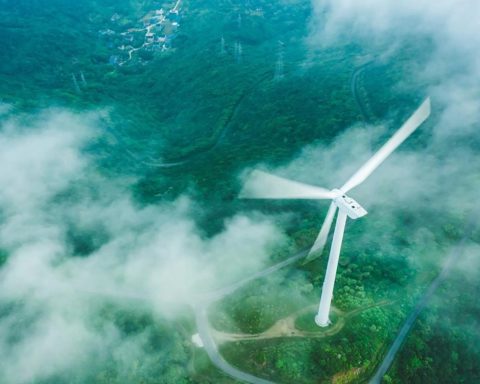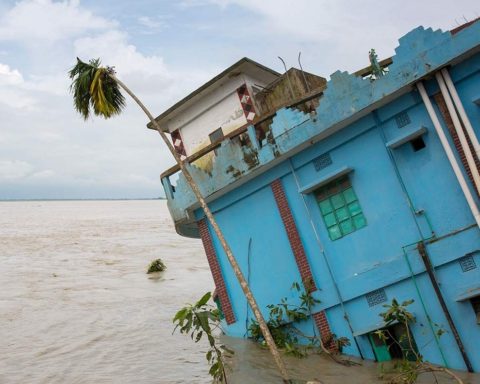Alors que ce mercredi 2 mai seront dévoilées les propositions de la Commission européenne sur le futur cadre financier pluriannuel, l’Institut du développement durable et des relations internationales (Iddri) publie un Policy Brief intitulé « Le futur budget européen sera-t-il vert ? Dix sujets à suivre dans les prochains mois ». La part du budget consacrée aux dépenses environnementales, les critères de sélection des projets d’infrastructure européens, le rôle de la fiscalité environnementale pour alimenter le budget de l’UE ou encore la présentation du budget européen y figurent parmi les dix sujets clés identifiés par l’Iddri qui permettront de faire du budget européen un accélérateur de la transition écologique et énergétique.
L’actuel Cadre financier pluriannuel (CFP) de l’UE – soit les montants que l’UE a été autorisée à utiliser pour ses différents domaines d’action entre 2014 et 2020 – arrive bientôt à échéance. Les priorités en cours de définition du futur budget européen (le cadre financier pluriannuel, période 2021-2027) orienteront de manière décisive l’action de l’Union européenne et sa contribution à la mise en œuvre de la transition écologique. Les discussions autour de ce nouveau budget ont débuté, et pourraient se prolonger au-delà des élections du Parlement européen et de la nomination d’une nouvelle Commission en 2019. Si elles se focalisent pour l’instant sur l’enveloppe globale du futur budget ou sur le financement de nouvelles priorités comme la défense et la gestion des flux migratoires, elles ne pourront faire l’impasse sur la transition écologique et en particulier climatique.
La France, par la voix du Président Emmanuel Macron, a d’ores et déjà appelé à faire de la transition écologique et de la lutte contre le changement climatique une priorité pour l’Europe et propose d’y dédier 40 % des ressources du budget européen.
Le budget européen est souvent raillé pour sa taille modeste : environ 1 % du produit intérieur brut (PIB) de l’Union européenne (UE), soit de l’ordre de 150 milliards d’euros par an, et 2 % du budget des États membres.
Néanmoins, il ne faudrait pas sous-estimer son rôle. Il participe à hauteur de 14 % aux investissements publics dans les pays européens, et au-delà de 30 % dans de nombreux pays. Par ailleurs, l’UE a développé ces dernières années de nouveaux instruments financiers dont l’objectif est d’avoir un effet de levier important sur des financements privés (1).
Déjà, le Parlement européen, les ONG environnementales et quelques États membres appellent à « verdir » le prochain Cadre financier. Comme l’explique Damien Demailly, coordinateur des initiatives à l’Institut du développement durable et des relations internationales (Iddri), dans une tribune du 26 février, à en croire la communication que la Commission a adressée au Parlement européen et au conseil des chefs d’État, pour préparer les discussions du 23 février, le climat, l’énergie et plus généralement la protection de l’environnement ne figurent pas au rang des priorités de l’UE pour la décennie à venir. Aucune nouvelle proposition n’est faite pour augmenter l’effet de levier du budget européen sur les investissements publics et privés dans la transition énergétique et écologique. Que ce soit en Europe même ou dans les pays avec lesquels elle coopère. Deux ans après la signature, en Europe, de l’Accord de Paris sur le climat, c’est pour le moins surprenant. D’autant que certains leaders européens comme Emmanuel Macron ont affirmé que ces enjeux devaient être au cœur du projet politique de l’UE. Une Europe qui protège doit aussi protéger les Européens des enjeux environnementaux globaux. Il est donc nécessaire que l’UE augmente fortement – voire double – son objectif budgétaire pour le climat. Elle pourrait aussi se doter d’objectifs complémentaires pour la préservation de la biodiversité et des ressources naturelles. Quoi qu’il en soit, ces objectifs devront être déclinés dans les différents fonds européens, spécialisés sur l’innovation, les infrastructures, l’agriculture, etc. Et le diable se cachant dans les détails, une attention particulière devra être portée à la définition, au suivi et au rapportage de ces dépenses considérées comme « vertes » pour assurer un débat public transparent et informé.
Le Policy Brief de l’IDDRI, réalisé par Nicolas Berghmans Chercheur, Climat et Energie et Damien Demailly, Coordinateur des Initiatives, identifie dix sujets importants à suivre, qui feront – ou non – du futur budget européen un levier de la transition écologique, avec quatre messages clés :
– Quelle sera la part du prochain CFP affectée à la transition écologique ? L’objectif actuel de « 20 % des dépenses pour le climat » est jugé insuffisant par de nombreux acteurs qui appellent à l’augmenter, voire à l’étendre à d’autres enjeux environnementaux. Encore faudra-t-il mieux définir ce qui peut être ou non comptabilisé comme une dépense concourant à la transition écologique, afin d’éviter tout sentiment de greenwashing.
– Concernant la fin du soutien apporté aux projets qui entrent en contradiction avec les objectifs environnementaux de long terme de l’Union, et en particulier l’atteinte de la neutralité carbone, le prochain CFP sera l’occasion de préciser ce que l’UE considère comme une dépense anti-écologique, et ce qu’est au contraire une dépense « verte ».
– Ces deux sujets sensibles ne devront pas seulement être abordés au niveau du budget global, mais aussi dans chaque fonds européen. À commencer par ceux dédiés aux cinq domaines d’action suivants : la solidarité avec les pays et régions défavorisées en Europe ; l’agriculture ; l’innovation ; les infrastructures ; et la coopération avec les pays en développement.
– Enfin, les discussions sur le prochain CFP pourront être l’occasion d’introduire des taxes environnementales pour augmenter les ressources propres de l’UE ; d’accompagner les territoires et travailleurs affectés par la transition écologique ; voire de modifier la présentation du budget pour mieux faire apparaître sa contribution à cette transition.
(1) Thillaye, R. (2016). Can the EU spend better? An EU budget for crises and sustainability. Rowman and Littlefield international.
S’abonner
Connexion
0 Commentaires
Inline Feedbacks
View all comments












